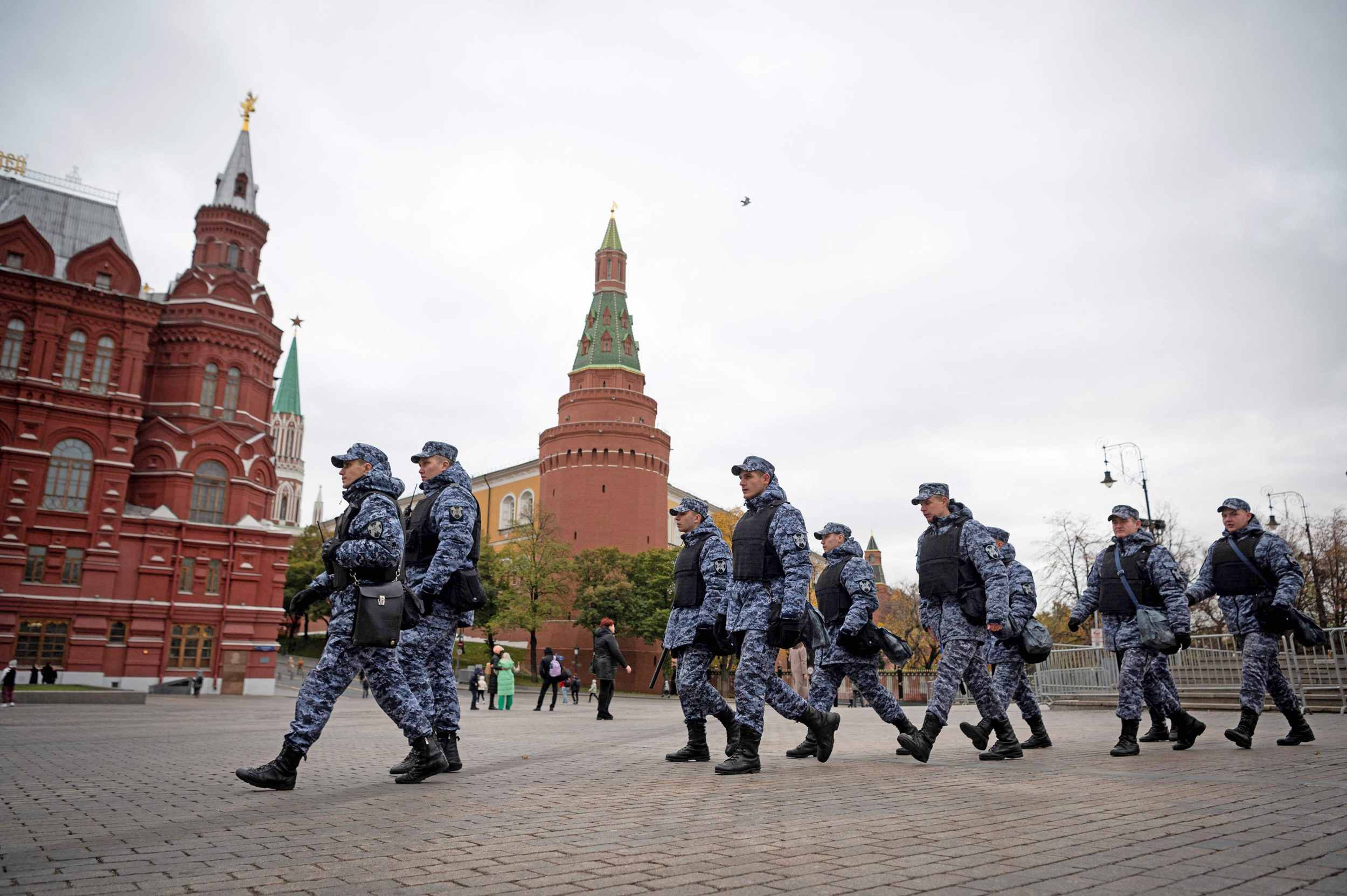- In short: Anti-Kremlin activists are urging world leaders to declare Russian president Vladimir Putin’s rule over the country illegitimate.
- Mr Putin was re-elected in March in a vote many observers say was rigged.
- What’s next: So far, certain countries such as the US, the UK and Poland have questioned the legitimacy and legality of the vote but not gone as far as officially declaring Mr Putin’s presidency as illegitimate.
One of Vladimir Putin’s fiercest critics has called on Australia and other Western nations to declare his leadership illegitimate following a Russian presidential election that was widely considered a sham.
“He is illegitimate,” Anastasia Shevchenko told the ABC, from Vilnius, in Lithuania, where she now lives in political exile.
“We have no free media. His rivals are killed or in jail or in exile. There are so many repressions.
“The war in Ukraine is the main reason. He is a criminal. We know it. There is a decision at the Hague court, that he kidnaps people, children. He kills people. How can we call him legitimate?”
Anastasia Shevchenko, co-ordinator of the Open Russia movement, outside the Russian embassy in Vilnius.(ABC News: Adrian Wilson)
Ms Shevchenko knows first-hand the brutality of Mr Putin’s regime.
As a pro-democracy activist and co-ordinator of the Open Russia movement, she was placed under house arrest in 2019 — the first person in Russia to face criminal prosecution for taking part in activities of an “undesirable organisation”.
After she was arrested, she was denied permission to visit her teenage daughter Alina who was critically ill in hospital. By the time officials finally relented and allowed her to go to the hospital, her daughter was unresponsive. She died two hours later.
A documentary about her story, called Anastasia, was made by Australian filmmaker Sarah McCarthy and short-listed for an Oscar. Ms Shevchnko is now involved in organising a petition calling on the west to declare Mr Putin’s presidency illegitimate.
“We created this text together and started promoting it. Many, many different politicians, artists and scientists signed the petition in Russian,” she said.
“Then we translated it into 21 languages, and the petition in English was signed by approximately 100 well-known politicians abroad.”
A memorial for Russian opposition leader Alexei Navalny outside the Russian embassy in Lithuania.(ABC News: Adrian Wilson)
It’s an idea supported by other Russian pro-democracy activists including Alexei Navalny’s widow Yulia, former oligarch Mikhail Khodorkovsky and Vladimir Kara-Murza, the opposition politician currently serving 25 years in jail for speaking out against the war in Ukraine.
From his prison cell in Siberia, Mr Kara-Murza wrote an opinion piece for the Washington Post where he argued “the absence of opposition candidates, media censorship and large-scale repression” made the election illegitimate.
He also made the case that Mr Putin had “illegally enacted” a personal exemption that allowed him to run again for president despite constitutional restrictions on serving beyond two consecutive terms. He argues this was a further reason to declare his presidency illegitimate.
“The only logical, and the only honest, political response to this from the world’s democracies would be to deny recognition of Vladimir Putin as the legitimate leader of Russia after May 7 [inauguration day] — in the same way they have refused to recognise the legitimacy of, for example, Nicolás Maduro in Venezuela or [Aleksandr] Lukashenko in Belarus,” he wrote.
In a paper written for the Henry Jackson Society in London, Stephen Hall said: “The West should declare Putin illegitimate, limiting interactions to essential humanitarian matters and seeking a peaceful resolution to Russia’s aggression in Ukraine.”
“This declaration would enable the West to support Russian opposition groups and formulate plans for a democratic future-Russia.”
So far, certain countries such as the US, the UK and Poland have questioned the legitimacy and legality of the vote but not gone as far as officially declaring Mr Putin’s presidency as illegitimate.
It’s thought that if any countries were to move first on this front, it would likely be Poland or Lithuania.
Last month, the Parliamentary Assembly of the Council of Europe (PACE) unanimously urged the international community to no longer recognise Mr Putin as the legitimate president of the Russian Federation.
PACE president Theodorous Rousopolous said in a statement: “These elections have no legitimacy. There were no genuine alternative candidates, no free media, no credible observers present. Civil society has been silenced.”
“And above all, this election has also been conducted on the illegally occupied and annexed territory of Ukraine.”
Former Russian government minister turned Putin critic Vladimir Milov.(ABC News: Adrian Wilson)
Vladimir Milov, who served as deputy minister for energy under Mr Putin in the early 2000s, believes such a move would make a difference.
“This is actually very important. Last year, when Putin was not able to travel to South Africa because of the International Criminal Court’s arrest warrant, that really sent shockwaves across the Moscow elites,” Mr Milov told the ABC.
“It was thought that, OK, we have a rift with the West, but we have many other allies BRICs, China, India, South Africa and so on. And now we see that because of a lot of international action against Russia, against Putin, he’s restricted. He is isolated.
“So, declaring him an illegitimate ruler would mean a lot.”
Mr Milov described the election outcome of Mr Putin supposedly getting more than 87 per cent of the vote as “not believable” and “ridiculous”.
“We are clearly moving towards the results of the worst dictators in the world. So 99 per cent is not too far away,” he said.
He says the West needs to call the election for what it is: a sham.
“I just hope that things will begin moving in that direction,” he said.
“At some point, Western leaders will have the guts to actually say that he does not have a mandate from the Russian people to do what he is doing.”
